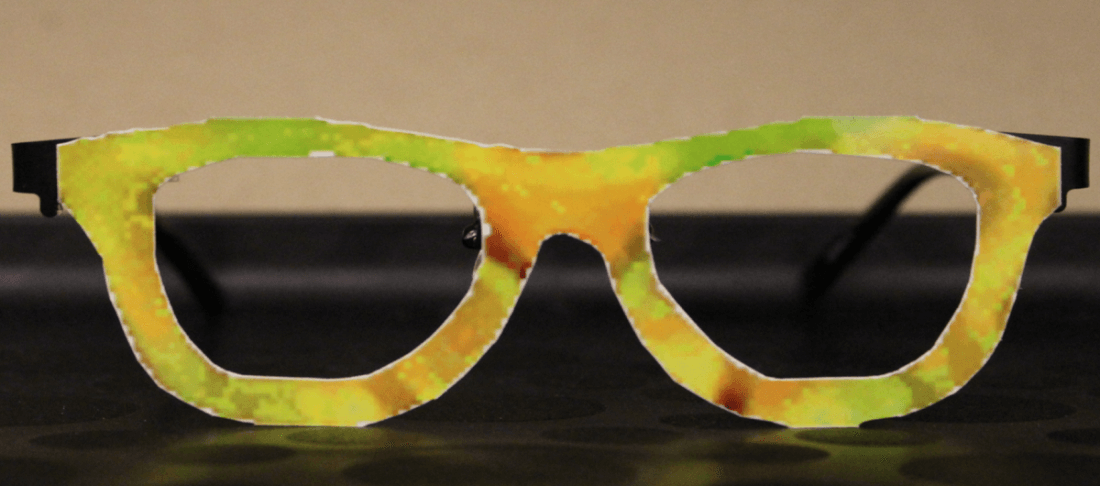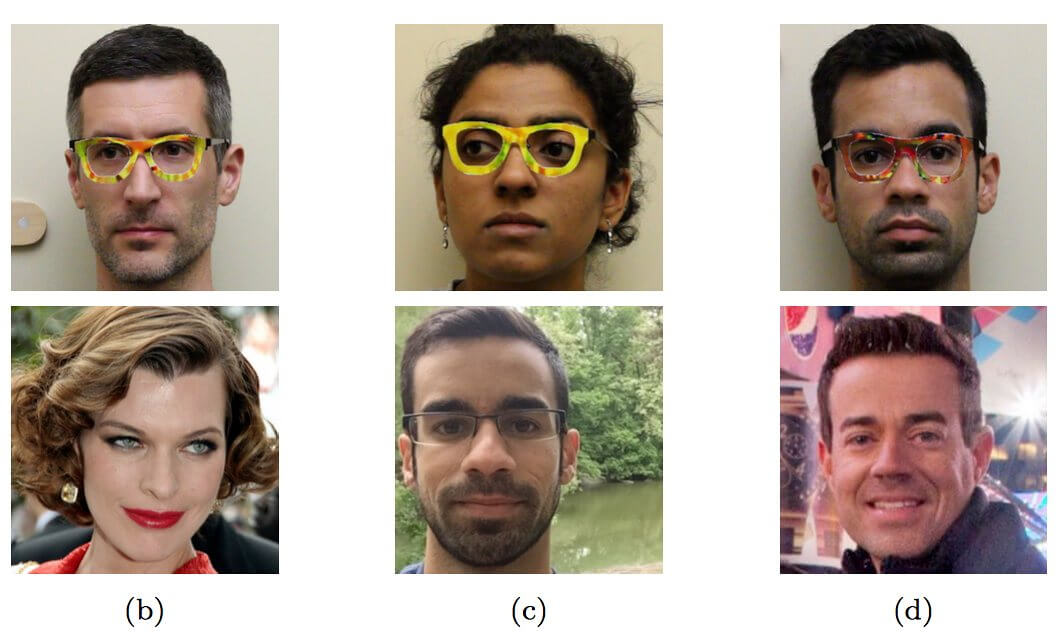Are you worried about the rise of facial recognition systems? Sick of being automatically tagged in Facebook photos, or concerned about the possibility of a Black Mirror-style police state? If so, then you'll be happy to learn about a new pair of glasses that can trick the technology.
A team of researchers from Carnegie Mellon University developed the glasses, described in this paper, which prevented facial recognition systems from identifying people in 100 percent of the tests.
The glasses work by taking advantage of the way facial recognition software identifies people. It doesn't see faces the way a human does; it just looks at the pixels, measuring distances between facial features. The researchers printed the patterns that the systems detect onto a large pair of wide-rimmed glasses, which obscure about 6.5 percent of the pixels in a picture. This fooled the facial recognition systems, and in some cases made it think the wearers were someone else.

In one instance, the Face++ recognition software was 87.87 percent certain that a 41-year-old man wearing the glasses was actress Milla Jovovich. But the results aren't consistent when it comes to impersonating others; a 24-year-old South Asian female was able to pass as American statesman and retired general Colin Powell just 16 percent of the time.
Researcher and co-creator Mahmood Sharif said the glasses look ordinary, though they are pretty garish. The researchers were able to print the frame pattern using a normal photo printer for just 22 cents per frame.
"Our work shows that one particular kind [of algorithm] --- face recognition based on deep neural networks --- can be misled by an adversary who has the ability to do nothing except relatively alter her appearance," said Sharif. "Before we deploy deep neural networks in safety or security-critical contexts, we need to better understand how to make them robust in the face of malicious interference."
Earlier this year, an app called FindFace launched in Russia that let users take a photo of someone in a crowd and work out individuals' identities with 70 percent reliability. It does this using image recognition technology to compare faces against the 200 million profile pictures on Vkontakte, known as the Russian Facebook.
